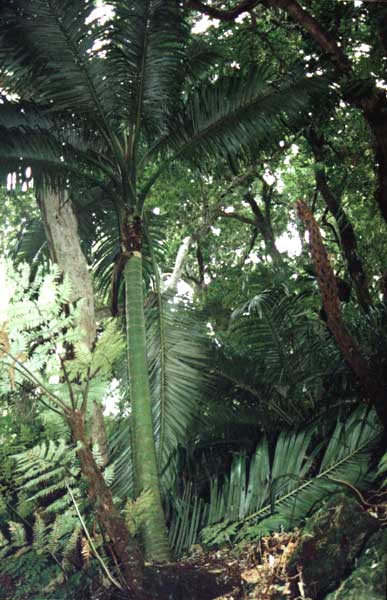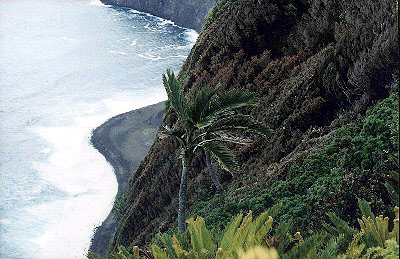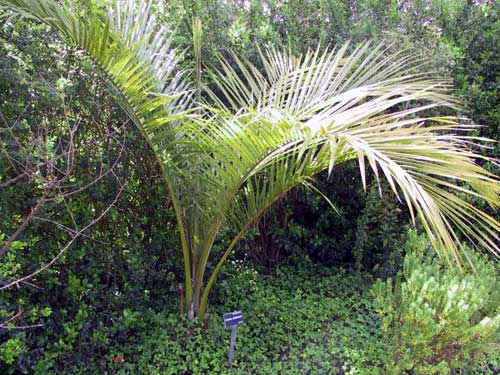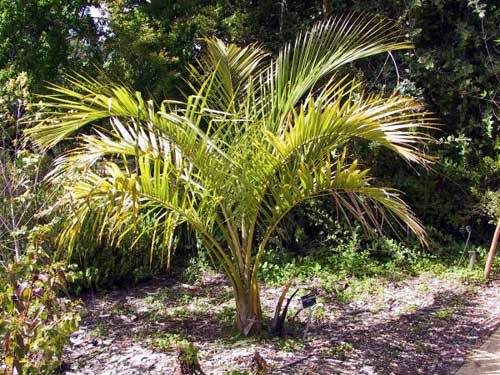Juania australis
From PACSOA Wiki
| Welcome to the PACSOA Palms and Cycads wiki!
If you have any information about this species, please help by updating this article. Once you are registered you can contribute, change, or correct the text, and even add photos on this page. Click on the edit tab above and play around. Any mistake can be easily corrected, so don't be afraid. |
Common Names:[edit]
Conta Palm
Habitat:[edit]
Juan Fernandez Islands, in the Pacific Ocean, off the coast of Chile.
Description:[edit]
A large, solitary feather palm with a green trunk and distinct grey rings. Dioecious (has male and female plants).
General:[edit]
A rare palm, endangered due to habitat destruction. Export of seed from Juan Fernandez Islands has been banned by the Chilean Government, and there is apparantly only one mature plant outside the island. This means that seed is virtually impossible to obtain.
Culture:[edit]
This is an island palm, and like many palms from temperate islands, requires a very difficult to imitate set of conditions. It is apparantly not very cold tolerant (it can handle light frosts, but not much more), and also objects very strongly to night time temperatures above 15°C/60°F. It also has the annoying habit of growing seemingly happily for several years, and then suddenly dying for no apparant reason. It has been grown successfully in New Zealand (where it has flowered), and San Francisco, although the botanical gardens there lost a couple during a warm spell one summer. Surprisingly enough, it is also growing quite well in Dublin, Ireland, not a place normally associated with palm growing.
Contributed by:[edit]
Raul Farias Garate (Figures 1&2).
Eric D. Fehr (Figures 3&4).
Michael Gray (Text)
External Links:[edit]
Kew, PalmWeb, IUCN, JSTOR, Trebrown, EPS
Google, GoogleImages, Flickr, PalmTalk




